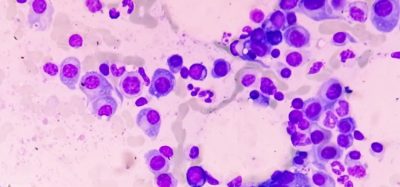Final positive results of Zolgensma® trial for SMA published
Posted: 20 June 2022 | Mandy Parrett (European Pharmaceutical Review) | No comments yet
After previous reports that nearly all spinal muscular atrophy (SMA) patients treated with Zolgensma® achieved key motor milestones, Novartis announces publication of full SPR1NT results.


Novartis’ gene therapy Zolgensma® (onasemnogene abeparvovec) has proven effective in enabling babies with spinal muscular atrophy (SMA) to reach age-appropriate milestones when treated prior to the onset of symptoms in SPR1NT study.
Without treatment, patients with two copies of the SMN2 gene typically develop SMA Type 1, which leads to progressive and irreversible loss of motor function and usually death or need of permanent ventilation by age two. Patients with three copies of the SMN2 gene mostly develop SMA Type 2, being unable to walk independently.
The Phase III SPR1NT trial (NCT03505099) assessed early treatment with Zolgensma for babies with both two and three copies of the SMN2 gene, the results from which Nature Medicine has published as separate companion manuscripts (for two copies and for three copies). These results were also presented at the European Academy for Neurology Virtual Congress in 2021 and the 2022 Muscular Dystrophy Association (MDA) Clinical and Scientific Conference.
According to Novartis, all children in the two-copy cohort met the primary endpoint of sitting independently for at least 30 seconds, with 79 percent achieving this milestone within the World Health Organization (WHO) window of normal development. The majority of patients went on to stand and walk independently, most within the typical range of normal development.
The trial outcome also found that within the three-copy cohort, 93 percent of children developed to walk independently – 73 percent within the WHO window of normal development. All 15 children met the primary endpoint of standing alone for at least three seconds.
Underlining this milestone achievement in SMA treatment, Dr Shephard Mpofu, Senior Vice President, Chief Medical Officer, Novartis Gene Therapies, asserted: “The robust data from both the two- and three-copy SPR1NT cohorts are being published together for the first time, further supporting the significant and clinically meaningful benefit of Zolgensma in presymptomatic babies with SMA. When treated with Zolgensma prior to the onset of symptoms, not only did all 29 patients enrolled in SPR1NT survive, but were thriving — breathing and eating on their own, with most even sitting, standing and walking without assistance.”
Adverse reactions were consistent with previous data, with no new safety signals identified, Novartis report.
Related topics
Biologics, Clinical Trials, Drug Development, Drug Safety, Gene therapy, Research & Development (R&D), Therapeutics
Related organisations
Nature Medicine, Novartis Gene Therapies, World Health Organization (WHO)









